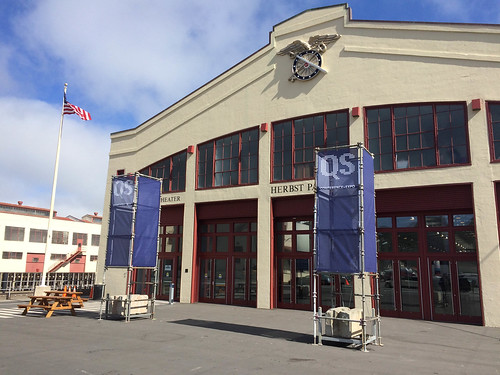I’m back from two jam-packed days at the QS15 (the Quantified Self Conference) held at Fort Mason, in San Francisco, and I have a few impressions.
There were three “cool” new ideas that I thought played an outsize role at this conference:
1. All things Microbiome
(obviously I would think so). uBiome was there, including an appearance at the first day’s plenary by Jessica Richman. My tweet (and heavily retweeted) summary of the session was a quote from the first speaker: “We are the last generation without personalized medical data”. That’s true for the microbiome especially, and it was wonderful talking with so many people about their new bacterial experiments. I’ll write more in future posts.
2. Heart Rate Variability
With better technology for measuring heart rates, many people have noticed that pulse/minute is a less useful measure than variability. Sometimes it’s more meaningful to look at how much each heart wave length varies from the others: high variability tends to be associated with creativity or improved mental processing, whereas low variability tends to be accompanied by stress or low learning situations.
Paul LaFontaine used HRV measurements to demonstrate that he is more nervous in situations involving presentations to groups of people than he is in situations reporting to a superior. Mark Leavitt showed it as a way to measure willpower.
3. Direct Cranial Stimulation
I thought this was fringe stuff when I first heard of it a few years ago, but enough people have tried it that I’m starting to rethink my skepticism. JD Leadam even has a company, https://thebrainstimulator.net/ selling devices for a little over $100.
Other
I was especially impressed by a breakout session led by Evian Gordon (http://mybrainsolutions.com) who seemed to know a ton about every imaginable aspect of assessing mental performance. Anyone interested in Seth’s Brain Tracker would want to understand what those guys are doing as well. Daniel Gartenberg is another psychology expert in attendance who I knows a lot about this subject. I had good results beta-testing an app he wrote that claims to help with deep sleep, so it was nice to talk with him in person again.
What I didn’t see: Apple Watch. Oh sure, there were some discussions of HealthKit and ResearchKit, but unlike QS15, which seemed to be attended by a significant percentage of the world’s Google Glass wearing population, I saw very few Apple Watches. Whether this is because the availability is still so limited or whether the QS early adopters just haven’t taken to the Watch yet — I don’t know.
I’m expecting that http://quantifiedself.com will dish out many more details in upcoming days and weeks. Worth watching further.
